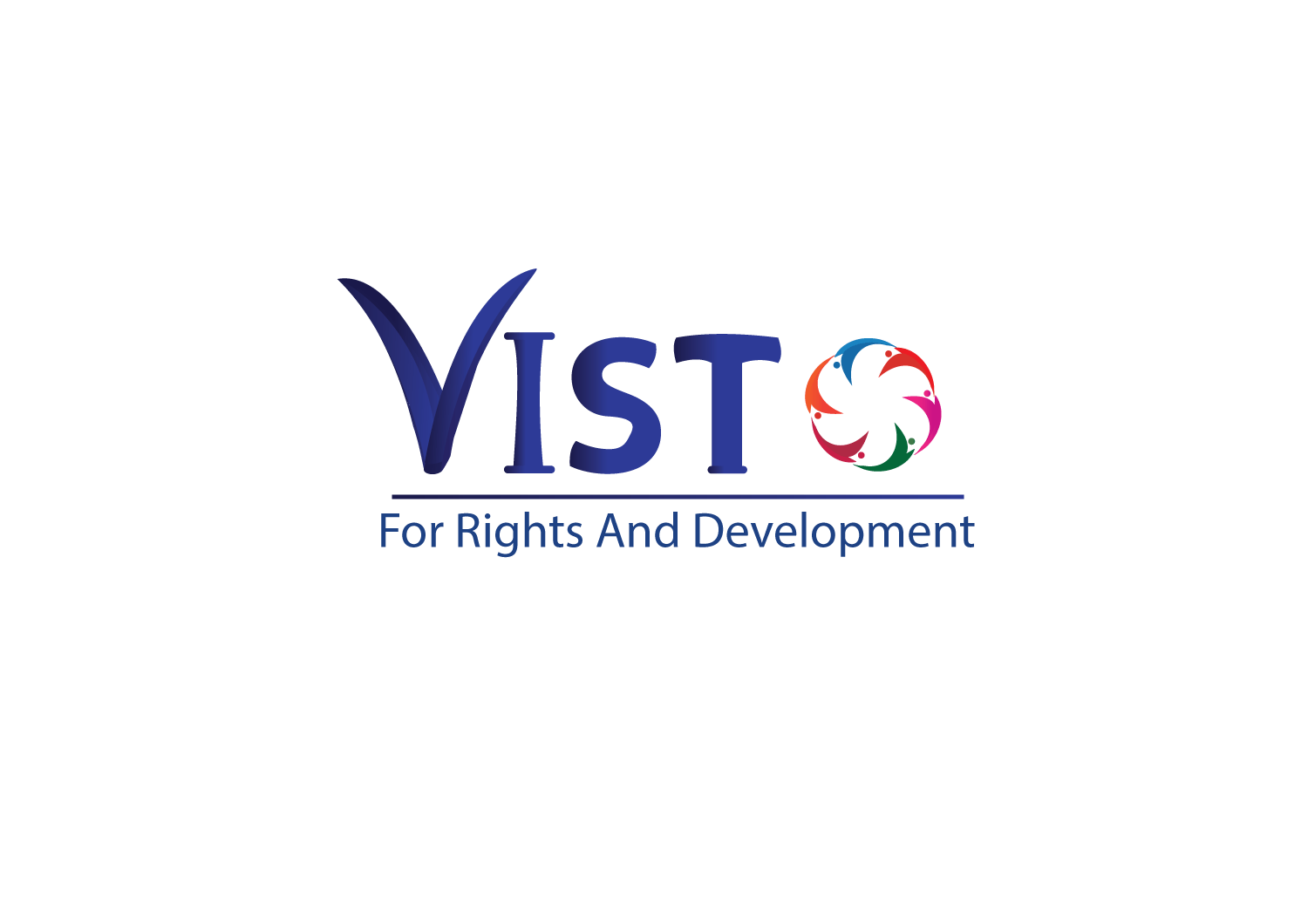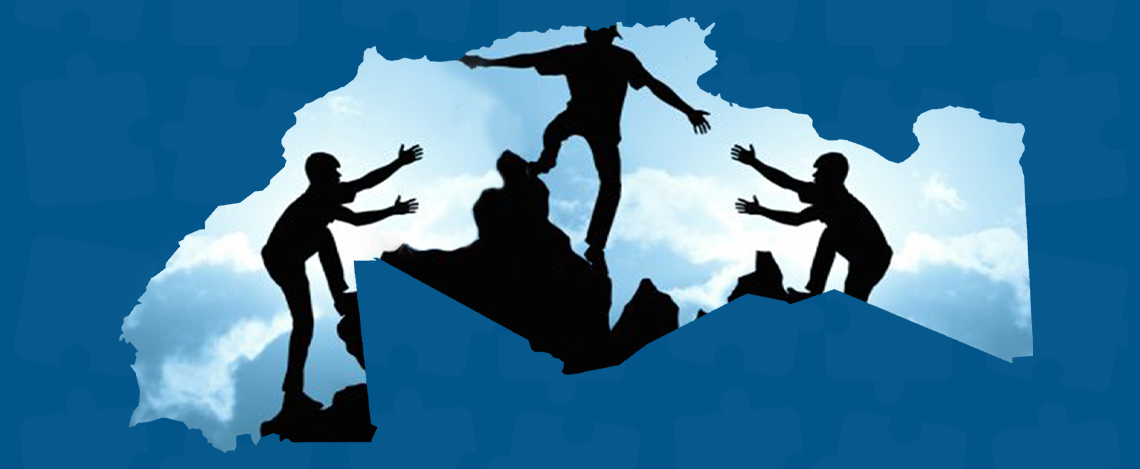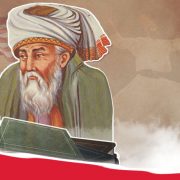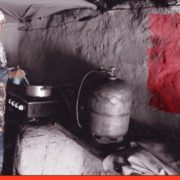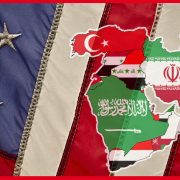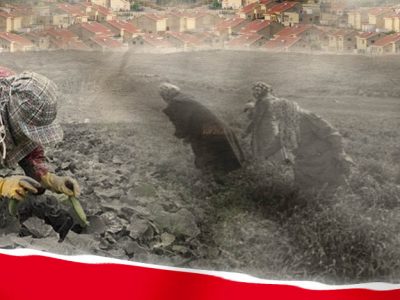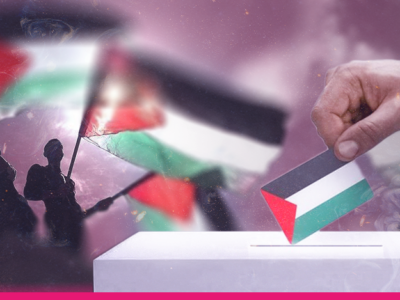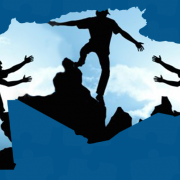This article discusses the impact of common identity and geographical proximity on the political behavior of the North African Region, and the extent to which the interaction of these aspects influenced the dynamics of conflict and cooperation in North Africa, through highlighting the role of political elites and regimes, as well as their perceptions and norms.
North Africa as Region Communalities and Differences
What makes North Africa a region? North Africa or The Maghreb region is known by the French during the colonial era as Afrique du Nord and by the Arabs as the Maghrib (meaning both sunset and western). Usually, the most accepted definition includes four countries: Algeria, Morocco, Tunisia and Libya. However, the definition doesn’t include Egypt. In the past, the region was influenced by the Phoenicians, Carthaginians, Romans, Christians, Vandals, and Byzantines and then finally by the Muslim.
Historically, North Africa has a common history and memory. It was a single political unit in the 11th and 12th centuries under the Moroccan al-Moravid dynasty, and the countries were united as neighboring administrations under the same ruler. This applies in the times of the Romans, the Ottomans (except for Morocco), and the French (except for Libya) during the anti-colonial struggle.
Linguistically, the language in the North African region is a major indicator of cultural and political identities. Furthermore, not only does language have a communicative dimension but also it reflects existence. After the Islamic conquest, the language in North Africa changed from Amazigh (or Berber) to Arabic. Historically, the language in the Maghreb was a constant marker of identity, a channel for resistance and a symbol of the menaced Maghrebi identity and culture (Arab, Muslim and Berber). The common language in the Maghreb represented a strong element of solidarity among the populations against colonisation and marginalization.
After the independence of North African countries, the language became a source of two major problems. The first one was the process of Arabisation: the issue of language became politicised and it created a gap between elites which were divided to Francophones and Arabophones. The second issue was related to the language of education and the lack of human capital (teachers). Nationalist feelings and national interest were opposite to each other. Regarding the religious aspect, the Maghrebi societies are Muslim, Sunni, Maliki. That’s why the religious-sectarian-doctrinal uniformity strengthened the collective regional identity.
In North African countries, the state was not the only actor in regional dynamics; non-state actors were very important and determinant as much as the identity factors themselves. Hence, it is necessary to understand the social organisations and non-state actors to clarify the dynamics of conflict and cooperation on the Maghreb’s social and state levels. Throughout history, tribes and kinship were among the most influential factors that affectedthe social dynamics in North Africa. A tribe isgenerally founded on ethnic relationships in which people and groups share the same values and act together on different occasions, including political ones.
Throughout history, tribes and kinship were among the most influential factors that affectedthe social dynamics in North Africa
Tribes represent a kind of social organisation, which might prevent nationalism. Moreover, kinship is a major force in changing the social relationships structure in many fields like politics, economy, marriage,…etc. Kinship looks out for loyalty, rather than political authority. It also has the force of determining who can interact and communicate with whom and under what circumstances.
Conflict Dynamics in North Africa
The North African conflict affected the Maghreb’s regional security and integrity. The first one relates to borders, and the second one is about the Western Sahara conflict.
Scholars describe the relation between Algeria and Morocco by using the term “frères ennemis” (or enemy brothers). The problems betweenAlgeria and Morocco started from the beginning of their independence. The major cause of it was the colonial policies. During the cold war, they were on different sides. They have long competed to be the dominant power in the region, and they are the main actors in North Africa. However, the relations between them were troubled. The conflict over Western Sahara has become the main feature of North Africa’s international politics and regional relations. Algeria and Morocco are the main actors in this conflict, which has influenced the present and the future of 85 million Maghrebis by weakening regional cooperation and integration. It has also obstructed the North African regional security cooperation against regional threats like terrorism and arms smuggling. Many scholars explained Algeria’s position in this conflict; some argued that Algeria’s policy aimed at destabilising Morocco, while others argued that Algeria’s policy is idealistic, which reflects its norms and values of self-determination that directed Algeria’s decolonisation from France.[1]
The conflict in Western Sahara is a conflict of two competitive perceptions and norms. Morocco views Western Sahara as part of its sovereign territory, and therefore, regards the conflict as a form of national destabilisation. On the other hand, Western Saharan nationalists, led by the Polisario Front, are demanding independence. Algeria, in turn, adopted the ‘self-determination’ principle, which means supporting the Polisario Front against Morocco. [2]
One of the problems the conflict has created relates to borders. Since 1994, Algeria closed its borders with Morocco due to security concerns. As a result, people’s movement and economic exchange via borders became impossible not only between the two countries but also between Morocco and other countries in the region. Specifically, Algeria represents a geopolitical barrier between Morocco and its other Maghrebi Neighbour, Libya.
Border issues have influenced the sociocultural sphere; the borders in any region form the reciprocal concepts and feelings of the “other” and “me”. The border is a dimension of the cultural view. Borders have an impact on the socio-economic picture of neighboring territories. They also have a psychological influence on the position of the population along the border, because it is not only geographical proximity but also the place of contact for norms, values and symbols.[3]
After the Arab Spring, the new regional change has brought its own kind of influence on Algerian-Moroccan relations. Inter-Maghreb relations have returned to the first principles: the stock exchange-like flux of Algerian-Moroccan relations. Morocco claims that Algeria lost a regional ally, represented by the “Gaddafi regime”. However, this claim doesn’t seem to hold sway because the Gaddafi regime was a disturbing neighbour to Algeria as well as a source of troubles and insecurity. Therefore, this state of affairs in North Africa (Maghreb) increased political polarisation between Algeria and Morocco. In addition, Moroccan had moderate foreign relations with both western and Arab allies, but Algeria was against any foreign intervention. This is what makes the Maghreb a site of conflict between foreign influences. However, the balance of power in the region was not affected by this change (Abdul Nour Bin Antar, 26 June 2011).
On the contrary to both, Tunisia’s behaviour before and after the Arab spring was characterised by non-intervention in conflicts, because of its size, population, capabilities and limited resources. Therefore, it wasn’t a source of instability and conflict in the region (Abdul Nour Bin Antar, 26 Juin 2011).
Cooperation Dynamics in North Africa
The Libyan crisis pushed the North African countries to cooperate with one another. It represented a direct threat to the regional security of North Africa, and therefore, it increased inter-Maghreb cooperation, especially between Algeria and Tunisia.
Concerning the economic issue on a state-level, North African countries have structural differences. Algeria’s and Libya’s economies are based on oil and gas, but Morocco’s and Tunisia’s are based on tourism and other economic sectors. Therefore, this structural difference influenced economic cooperation. Maghreb’s trade is largely directed towards Europe rather than other North African countries. Furthermore, the level of intra-Maghreb trade is lower than that of many of the world’s trading blocs. According to a World Bank report, intra-Maghreb trade represented less than 2 percent of the sub-region’s (GDP) and less than 3 percent of the sub-region’s total trade. In this sense, the political choices made have affected economic cooperation. In addition, the main problems now are due to the lack of, inter alia, production, diversification, as well as border problems.
The Libyan crisis pushed the North African countries to cooperate with one another. It represented a direct threat to the regional security of North Africa, and therefore, it increased inter-Maghreb cooperation, especially between Algeria and Tunisia
States are not the only actor in the economic market in North Africa. The private sectors do not seem to have difficulties working together in the Maghreb region, because they do not have any political aims. Thus, cooperation between the private sectors will improve the economic activity and provide jobs for the Maghrebi youth. Economic crises hitting Europe may push indirectly for a dialogue between state and non-state actors in the Maghreb region.
According to UNESCO, the Maghreb region “shares a common cultural background that needs to be identified, inventoried and safeguarded.” Culturally, the Maghreb region has an enormous cultural heritage; the region has many communalities, such as dialect, music, and cuisine, which can be considered a solid ground for a real futuristic cultural cooperation.
The Peterson Institute report, on the Maghreb Regional and Global Integration: A Dream to Be Fulfilled[4], suggested some solutions for possible cooperation between North African countries. The report argues that there is a desire among Maghrebi peoples and communities to achieve a regional integration and a Maghrebi unity. Therefore, the governments have to think rationally about what can be gained if the borders are opened, because the political situation now hampers economic growth and threatens the regional cultural identity and social cohesion.
[1] Jacob Mundy, “Algeria and the Western Sahara Dispute,” The Maghreb Center Journal, Issue. 1 (2010).
[3] Attila Fabian, “Constructivist Views of Cooperation along the Border”, Acta Univ. Sapientiae, Economics and Business 1, (2013), 39-51.
[4] Brunel, Claire, and Gary C. Hufbauer. Maghreb regional and global integration : a dream to be fulfilled. (Washington, DC: Peterson Institute for International Economics, 2008).
Visto International bears no responsibility for the content of the articles published on its website. The views and opinions expressed in these articles are those of the authors and do not necessarily reflect the official policy or position of the Organisation. All writers are encouraged to freely and openly exchange their views and enrich existing debates based on mutual respect.
